Amber Fort and Palace
The Amber Fort (a fortified palace) was established in 1592, by Man Singh I, and significantly added to by Jai Singh I. It served as the main palace of the Kachhawahas until 1727, when they moved to their new Jaipur palace. The Amber Fort is only 7 miles north of Jaipur.

As we approach the Amber Fort our bus pauses to give us a photo opportunity. In the picture above the Amber Fort is the one at the right, suitably amber in color. The higher one, sprawling across the hill at center, is the Jaigarh Fort -- an exclusively defensive citadel with huge water cisterns and the world's largest cannon on wheels (which, however, was never fired). Some people believe that vast remainders of the Kachhawaha treasury are still buried somewhere within the Jaigarh Fort. The fort was closed for several recent years while excavators searched for it, but they found nothing. However we won't be able to carry on the search ourselves because the Amber Fort is our destination this morning.
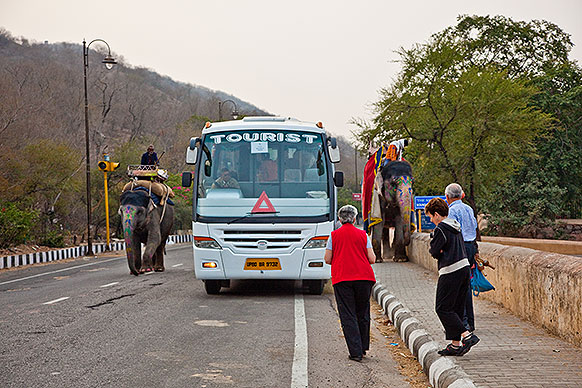
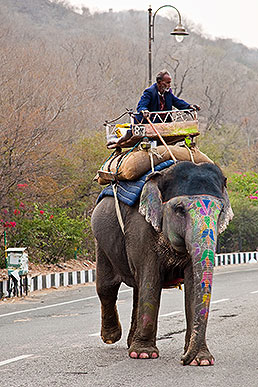
This is an elephant passing zone, as elephants overtake and pass our bus on both sides on their way to the fort.
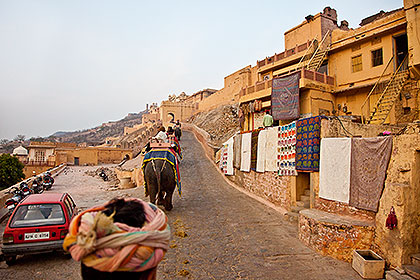
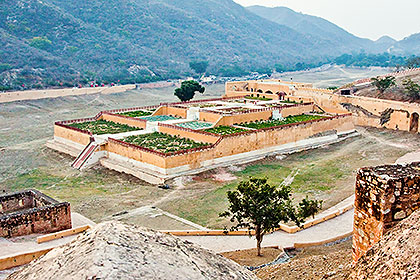
We mount elephants ourselves for the climb up the hill. Looking down into the valley we see the gardens of Dilaram Bagh, extending into Maota Lake (which is dry at this time of year). Further up the hill we make a sharp turn, and the final stretch brings us through the Suraj Pol to a very large courtyard of the Amber Fort, the Jaleb Chowk.
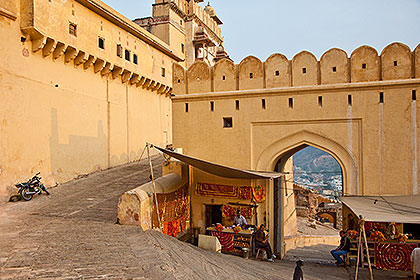
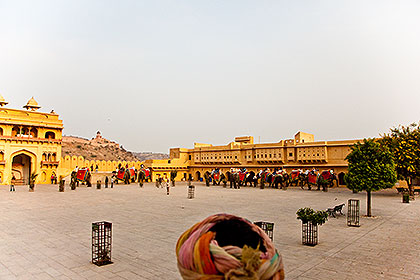
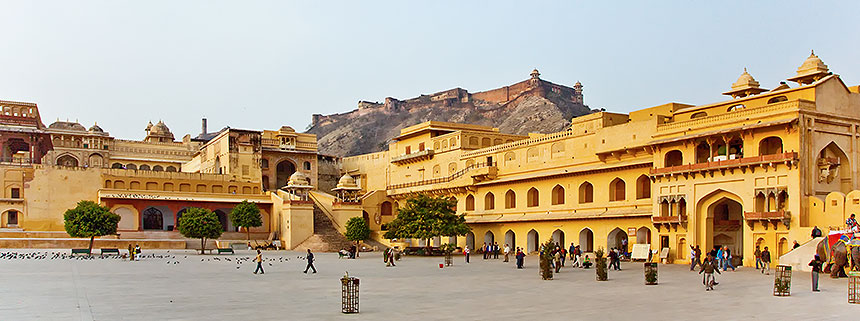
Jaleb Chowk, with the Chand Pol at right. The entrance to the Shiva Devi Temple is at the corner of the courtyard (center of photo). The Jaigarh Fort looms on the hillside above.
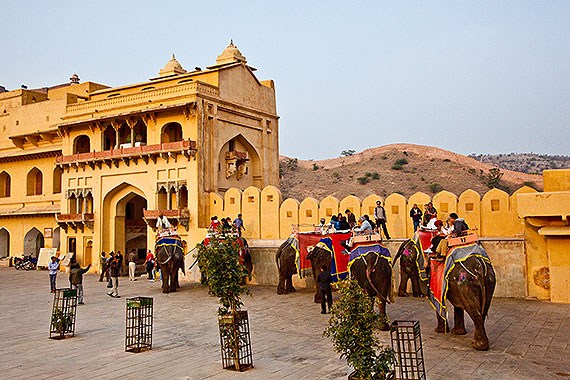
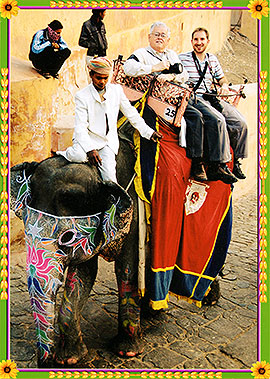
We arrive at the spot near the Chand Pol to dismount from our elephant, but first a local man takes our picture and later sells us a print (above right). That's me in the middle, Michael Di Giovine sharing the elephant with me, and of course our mahout in white. As the mahout turns the elephant to go back down the hill (below) we are able to get a detail view of the brightly painted young elephant.
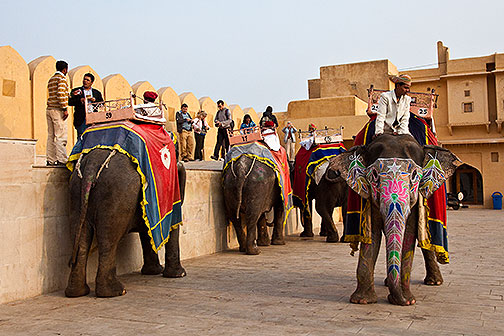
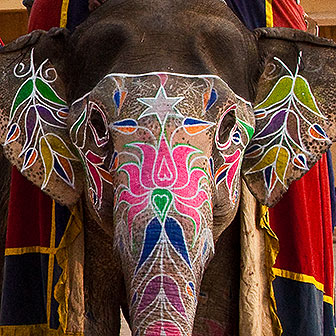
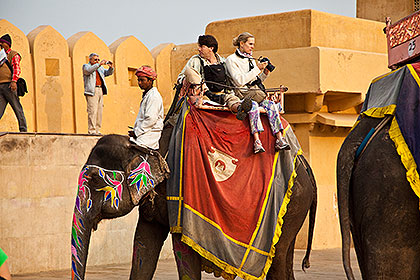
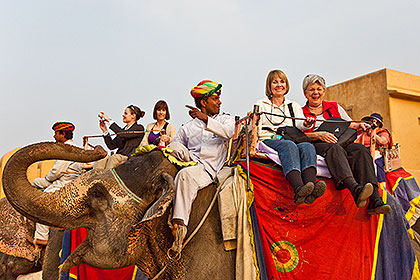
Some others arriving after us are George and Susan (upper left), Elizabeth, Jan, Andi and Joyce (upper right), Valerie and Carol (center left), Hank and Joyce (center right), Kimberly and Lori (lower left), Melissa, Gordon, Melanie and Sinead (lower right). I don't quite get photos of everyone.
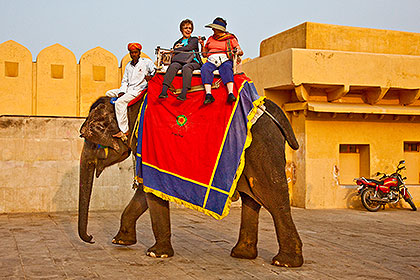
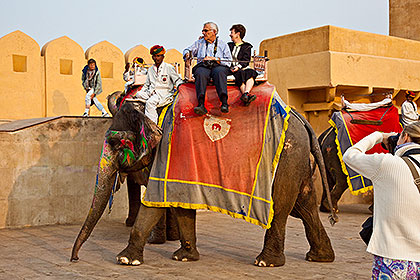
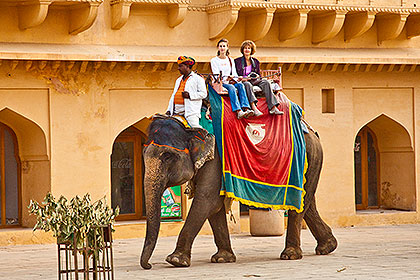
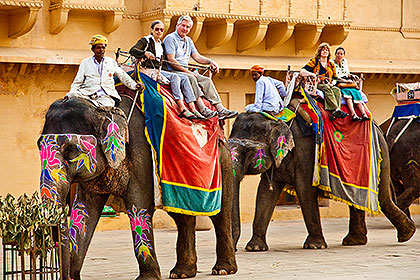
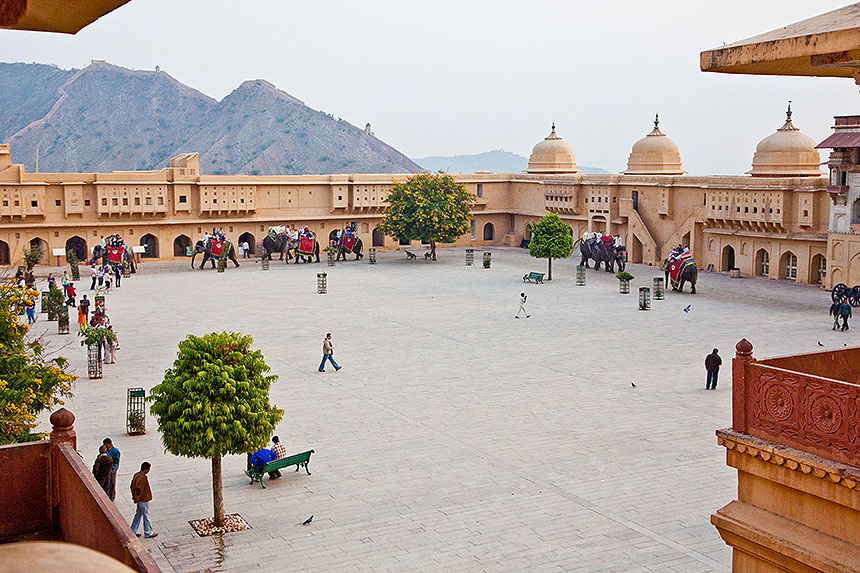
Another view of the Jaleb Chowk, this time seen from the Shila Devi Temple.
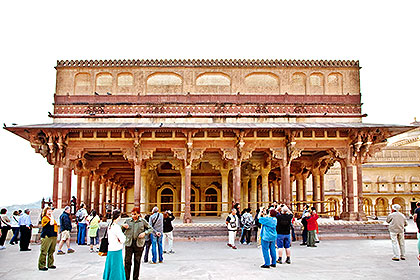
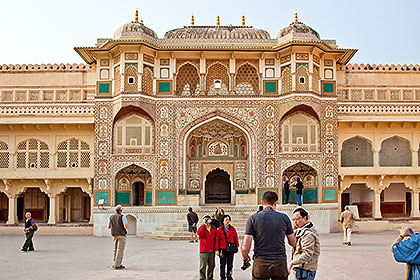
Diwan-i-Aam (Hall of Public Audience), left, and Ganesh Pol, right.
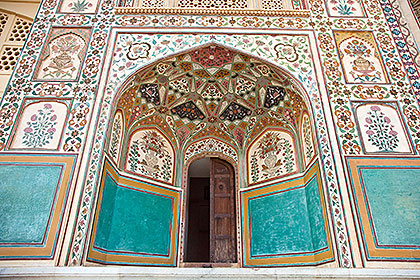
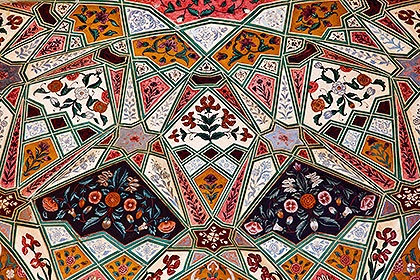
Ganesh Pol: side door arch and detail, above; main door arch and detail, below.
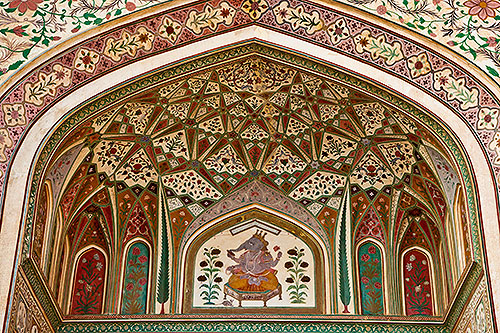
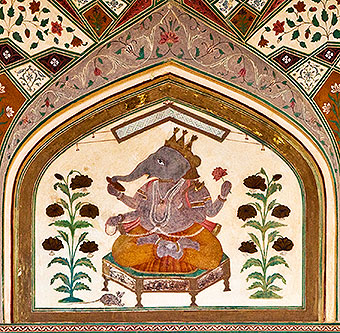
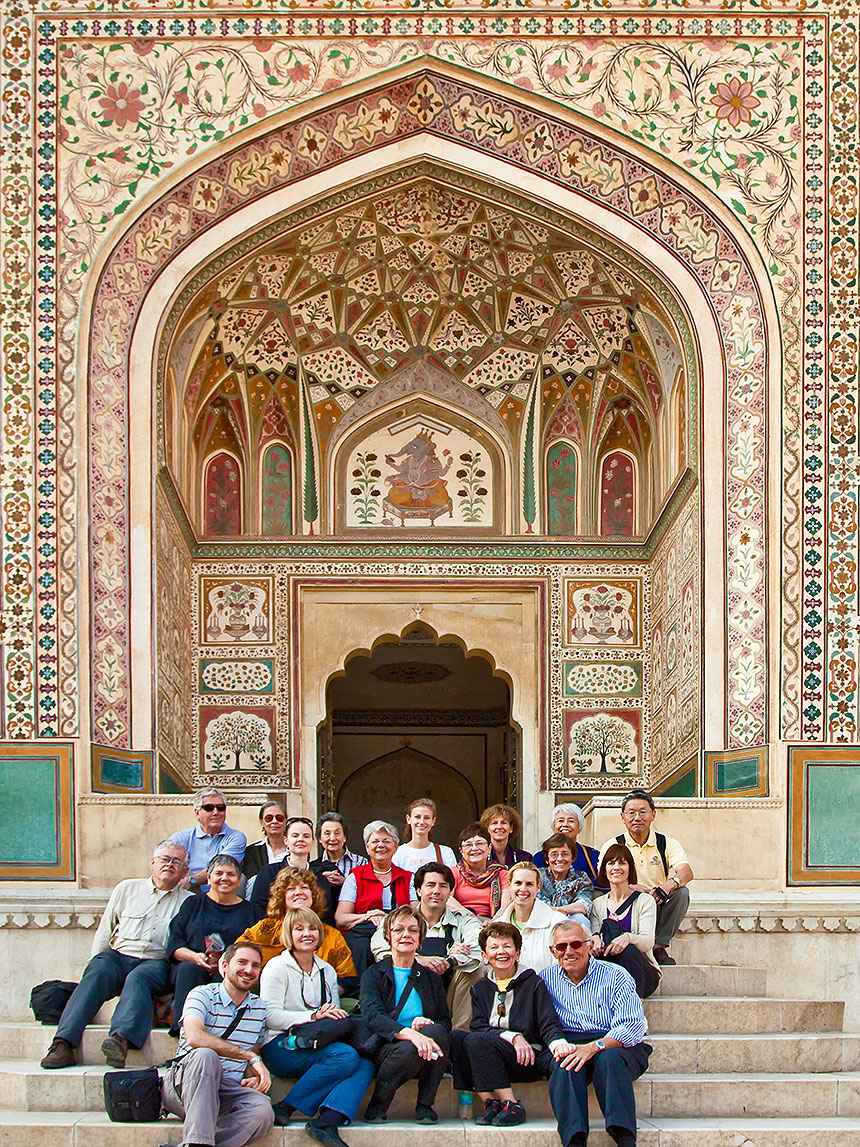
Sinead takes a group photo with my camera.
In the front row (left to right) are Michael, Andi, Valerie, Joyce W. and Hank.
The second row has Melanie, George and Susan.
In the third row are me, Marlene, Elizabeth, Joyce S., Carol H., Marsha and Jan.
Finally in the back row are Gordon, Melissa, Carol W., Kimberly, Lori, Izumi and Ken.
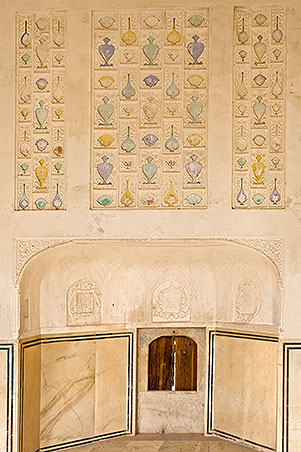
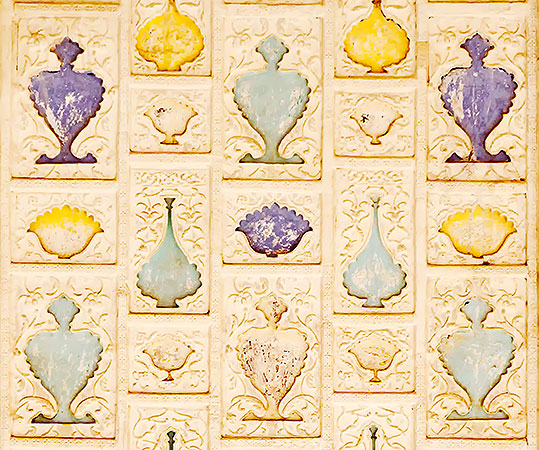
Wall decorated with sculptures in the Sukh Niwas (Hall of Pleasure), and detail at right.
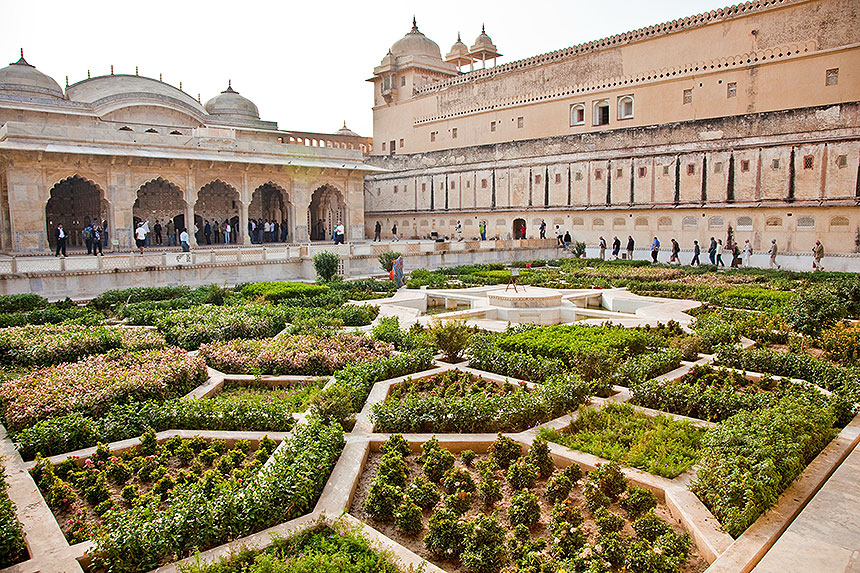
Aram Bagh (pleasure garden).
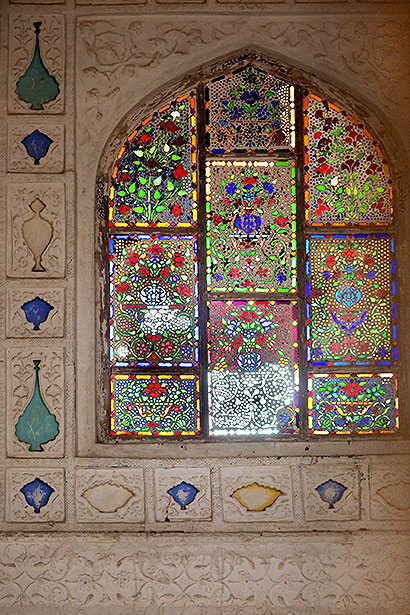
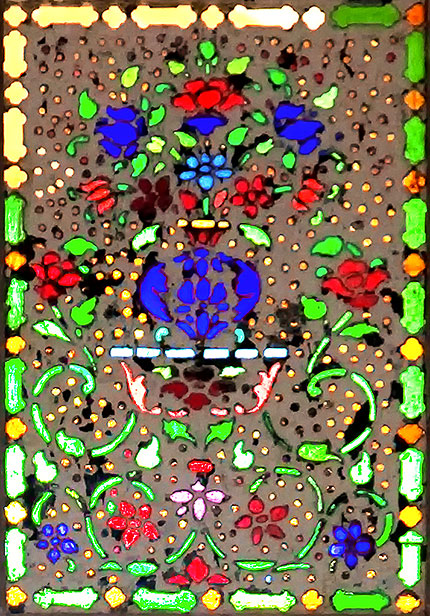
Wall sculptures and inlays of colored glass in the Sukh Niwas (Hall of Pleasure). Detail of central panel at right.
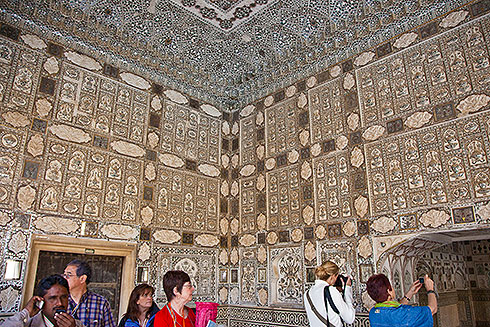
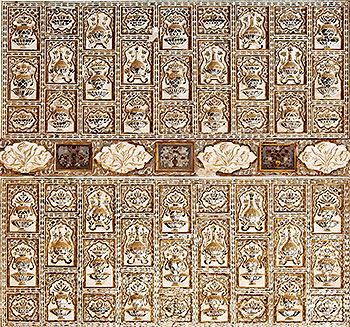
Jas Mandir (Hall of Private Audience), with wall detail (above right), mirrored decoration (lower left) and mirrored ceiling (lower right).
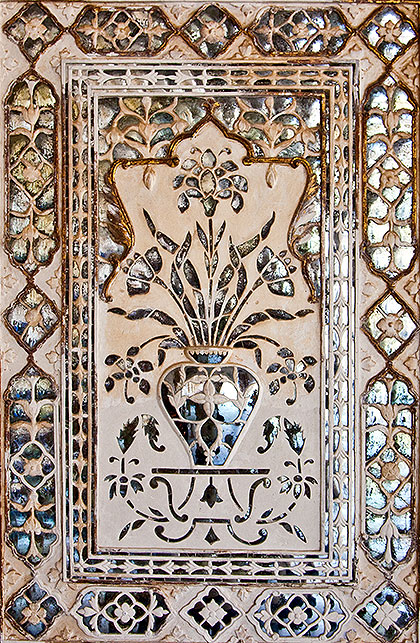
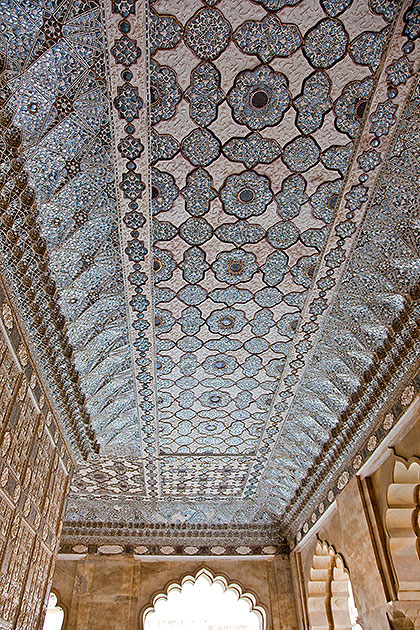
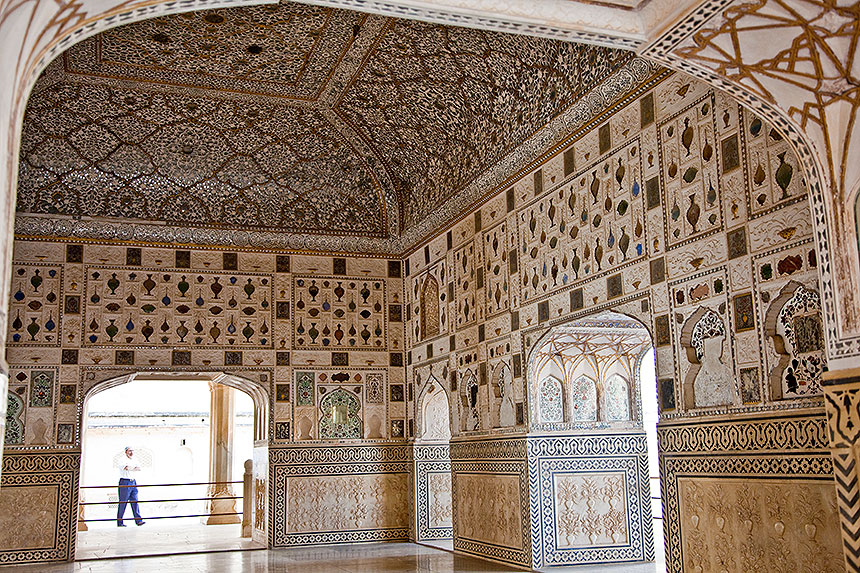
More mirrors, this time in the Sheesh Mahal (Hall of Mirrors), with ceiling of inlaid mirrors and walls decorated with mirrors.
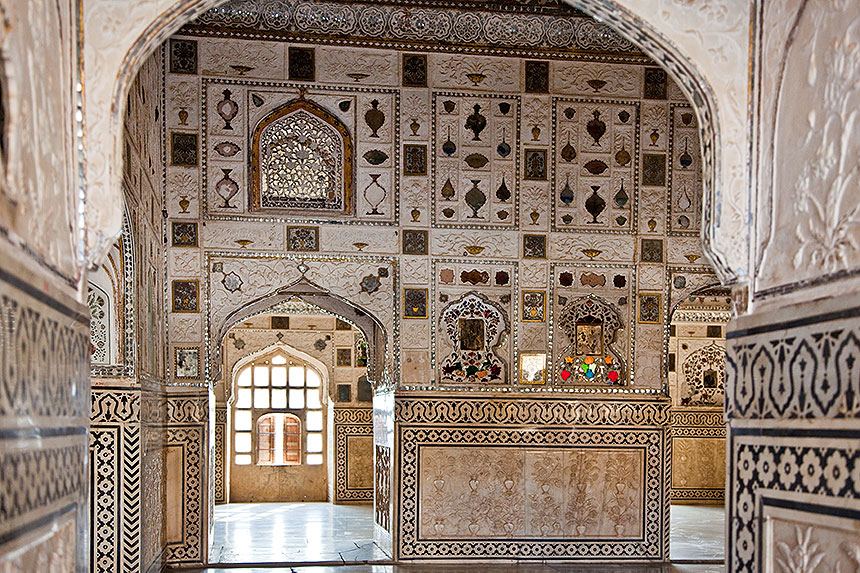
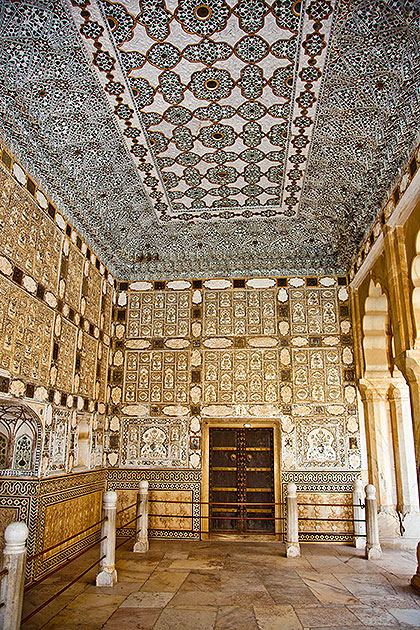
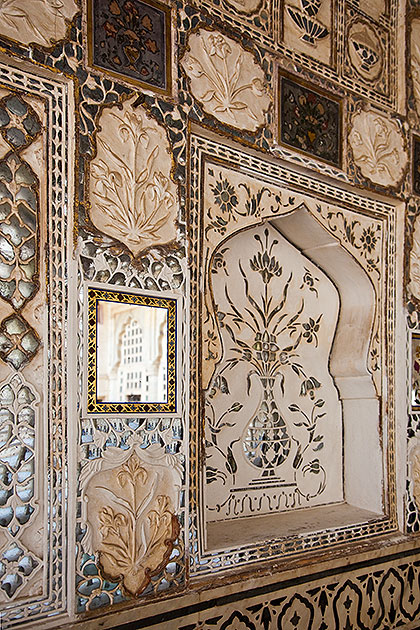
More of the Sheesh Mahal (Hall of Mirrors).
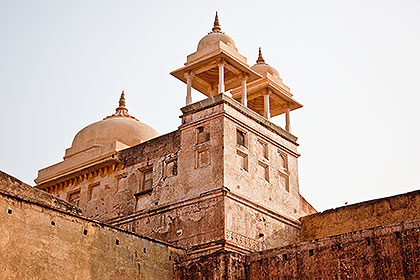
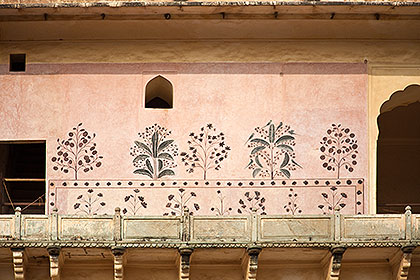
Stepping outside again, the exterior of the fort palace gives little hint of the exquisite treasures within, but a wall is decorated with floral frescoes.
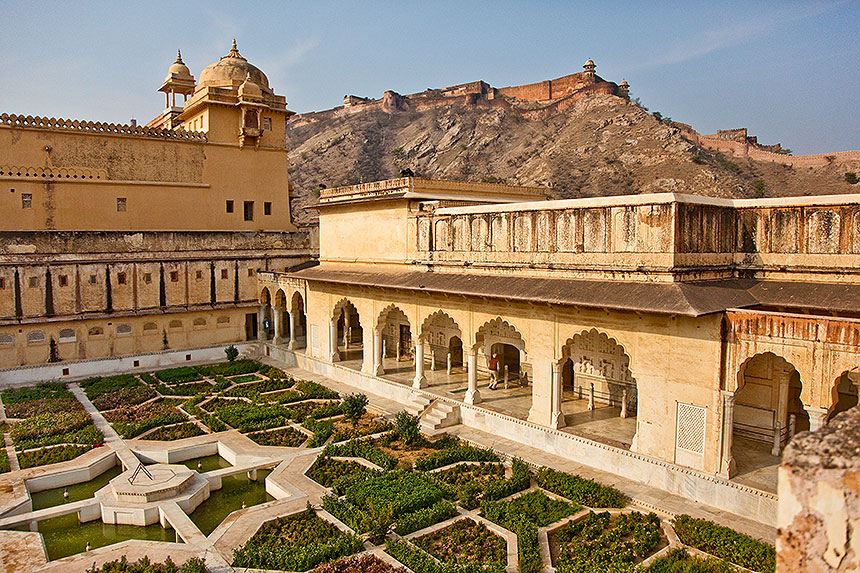
Another view of the Aram Bagh (Pleasure Garden) below and Jaigarh Fort on the hillside above.
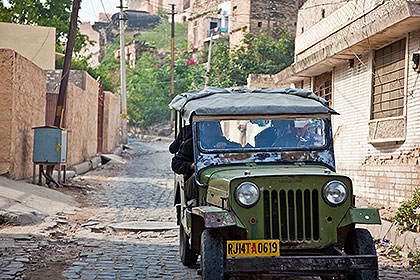
Leaving the fort, we come down the hill in jeeps instead of on elephants.
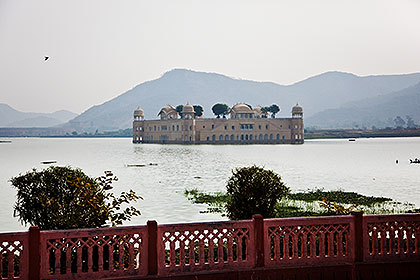
Jal Mahal, in Man Sagar Lake, south of the Amber Fort.
We return to Jaipur to see more, which will appear on the next page.